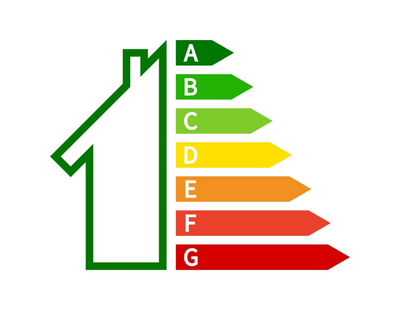There’s a warning this morning that stricter Energy Performance Certificate measures for the private rental sector may not have gone, after all.
Back in September Prime Minister Rishi Sunak announced that the government was scrapping plans to force landlords to upgrade the energy efficiency of their properties, following revelations that many would have to spend tens of thousands of pounds to meet targets. At the same time, Sunak raised the Boiler Upgrade Grant by 50 per cent to £7,500 to help households who want to replace their gas boilers with a low-carbon alternative like a heat pump - while at the same time delaying the ban on installing oil and LPG boilers, and new coal heating, for off-gas-grid homes to 2035, instead of phasing them out from 2026.
The measures were greeted with a sigh of relief by most of the rental sector, but now Rightmove says the picture is not so rosy.
The portal’s General Counsel David Cox - at one time a prominent figure in lettings agent body ARLA - says: “It’s likely that EPC requirements in some form will re-appear in the near future, so landlords with lower EPC rated homes should still keep this in mind and consider the improvements they might make. However with the deadline scrapped and all the attention on the Renters’ Reform Bill, it may be that while focusing on the changes the Bill brings in, considerations about green improvements take a back seat for some landlords.”
In a recent Rightmove survey amongst landlords, a quarter said they planned to make energy efficiency improvements to properties rated below a C, compared to over a third last year. Similarly, of those landlords who have properties below a C, 21 per cent now say they plan to sell them, compared with 33 per cent in April 2023.
Cox continues: “The Renters’ Reform Bill is now going ahead after several delays this year, though the earliest it’s likely to come into effect is the end of next year, and a general election could add further complications. Above all else letting agents and landlords want clarity, so that they can plan for the future and agents can provide the right guidance. The rental sector is filled with legislation and compliance requirements that agents and landlords need to keep up with, and so the earlier they understand the final contents of the Bill, the better they can prepare.”
Other experts at Rightmove have given their forecasts for major trends in the private rental sector in 2024.
One area of likely controversy is rents. Rightmove predicts these to be five per cent higher by the end of 2024 outside of London, and three per cent higher in London. This is despite the fact the currently a single renter with an average salary spends 51 per cent of their take-home salary on a typical rental home, compared to 49 per cent this time last year, and 46 per cent in 2019.
Rightmove lettings expert Christian Balshen says: “Many tenants will have a cap on what they can or are prepared to pay in rent, and an increasing number of landlords are having to reduce their advertised rent, suggesting more are reaching this cap. It will be vital for landlords to work closely with a local letting agent this year, who will be an expert in the dynamics of their local area, to help them to find the right tenant at the right rent for their local area.”
And the portal says that although there continues to be far more renters looking to move than homes available, the gap between supply and demand in the rental market improved throughout 2023.
Each home that an average letting agent advertises currently receives 11 enquiries from renters, compared to 14 at this time last year. Enquiries are typically lower in the winter months compared to the summer – this figure was 25 enquiries per property in August 2023. At the same time, mortgage rates have been slowly trending downwards, with the average five-year fixed mortgage rate now below five per cent for the first time since June.
However, the portal anticipates that mortgage rates are likely to remain high this year, and saving up a deposit continues to be a challenge for would-be first-time buyers amongst wider cost of living pressures, meaning that there is likely to be ongoing demand in the rental market from would-be first-time buyers who need longer to get their budget and plans in place.
Rightmove’s property expert Tim Bannister comments: “The downward trend of mortgage rates and the improved balance between supply and demand in the rental market are positive early signs for the year ahead. However, it’s important to remember that mortgage rates are still higher than in recent years, and there are still not enough homes available in the rental market for those looking to move. The challenges for would-be first-time buyers are likely to continue to have a knock-on effect for the rental market this year, with some who need more time to save up for their first home looking to rent for longer.”
We're excited to announce that we're working on building a shiny new website for readers of Landlord Today! As part of this process, commenting on articles will be temporarily disabled. We look forward to sharing our new and improved Landlord Today website with you shortly!









.png)

(1).png)







.jpg)






%20(002).png)





